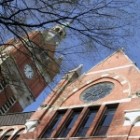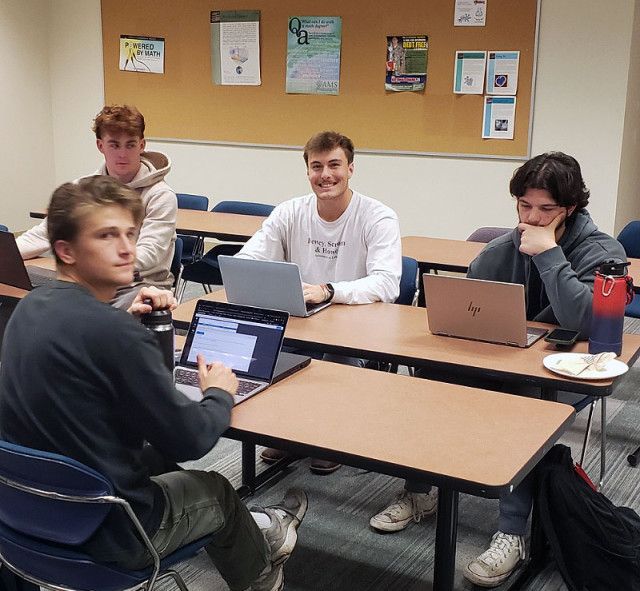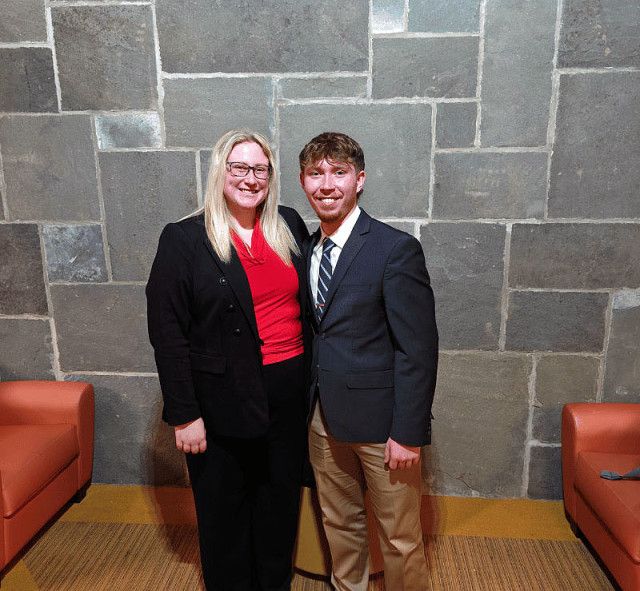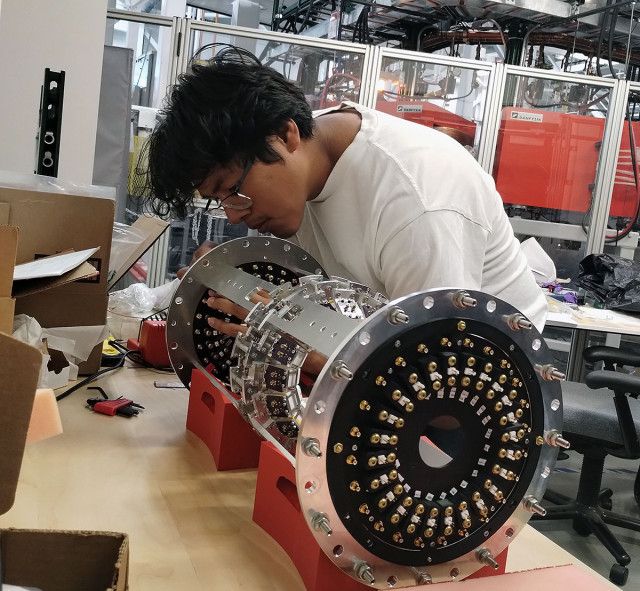When driving down Columbia Street, it is easy to miss the small, yet idyllic Columbia St. Cemetery. Despite its hidden nature, this little plot of land holds a great deal of historical significance for the City of Springfield. In an effort to preserve and rediscover its lost history, Wittenberg University Professor of History Darlene Brooks Hedstrom, who also serves as the chair of the history department and director of the archaeology program, and her archaeology students spent the month of May excavating this treasure trove of times past.
Columbia St. Cemetery is the oldest grave site in Clark County. It originated in the early 1800s and is home to the graves of Revolutionary War veterans, early pioneers, and even a member of the Boston Tea Party.
With the City of Springfield eager to preserve the cemetery yet unable to fund its preservation, Wittenberg’s archaeology program teamed up with the Turner Foundation to keep this history from being lost.
Students spent their class meetings collecting and creating records of the cemetery and carefully digging up lost artifacts. Their discoveries include pipe stems, glass from old milk bottles, and buried headstones. Through the excavation process, students and faculty have uncovered where the old paths of the cemetery once laid. In addition, the graveyard is currently missing dozens of headstones that were recorded to be present in the 1920s. Students have uncovered some of these headstones, thereby recovering burials once lost to history.
Irene Bilal-Engle, class of 2019, encourages other Wittenberg students to take this unique summer course.
“It’s fun! And you learn a lot—you learn a lot about history. Why things are the way they are and why people did what they did,” she said.
When people think of archaeologists, they often summon Hollywood images of Indiana Jones. In reality, an archaeological dig appears to be a much more intricate process. Matt Poretsky, class of 2019, admits that archaeology is very different than what he had expected.
“I didn't realize how detailed you had to be when recording your finds. There’s coordinates and elevation and percentage of material found in your section,” he said.
As a liberal arts institution, Wittenberg provides its students the opportunity to explore many fields of interest. With this mission, it is fitting that this class is open to archaeology minors and non-archaeology minors alike. Dr. Brooks Hedstrom invites students new to archaeology and hands-on-history to take her class.
“With the smallest bit of interest, you can build a successful experience here at Wittenberg. And it is something that will probably be one of the most memorable classes that you take,” she said.
During the excavation process, students have included the Springfield community in every aspect of their work by uploading their progress onto their website so that the community can check the students’ discoveries whenever they choose. In addition, they recently displayed their findings at the Hatch Artist Studios during Springfield’s First Friday event.
The achievements of Wittenberg’s archaeology students continue to expand even beyond the Springfield community. Caitlin Lobl ’16, who serves as the field director for the Columbia St. Cemetery project, attended the University College Dublin (UCD) School of Archaeology in Ireland at the Centre for Experimental Archaeology and Material Culture (to read more on her story https://www.wittenberg.edu/news/05-2-17/digging-deep ).
For more information on their findings go to www9.wittenberg.edu/nearbyarchaeology/.
Written By: Kim Estenson '19
Video By: Logan McCord '19






